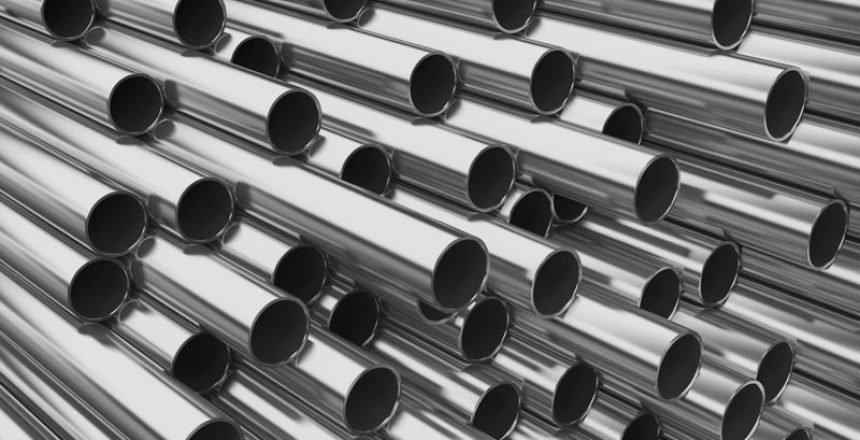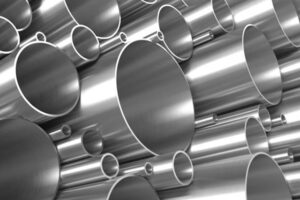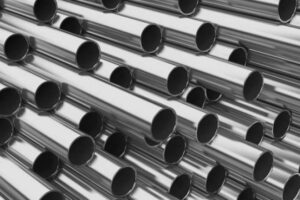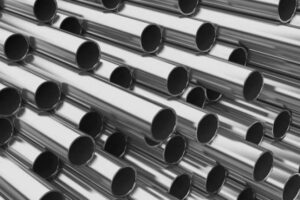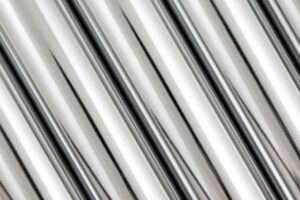Incoloy® Alloy 800H/800HT (UNS NO8811)
The alloy is typically used for applications involving long-term exposure to high temperatures where resistance is needed from oxidation, carburization, and other types of high-temperature corrosion. Hydrocarbon processing, heat-treat furnaces, and power generation are some of the most common applications where 800H & 800HT are utilized.
Alloy 800H/800HT are solid solution-strengthened, iron- iron-nickel-chromium alloy, typically offered as one, dual-certified alloy meeting the elemental requirements of both alloys. The principle difference between Alloy 800H and 800HT material is the restricted aluminum and titanium content in 800HT, which results in higher creep and stress rupture properties. Both Alloy 800H and 800HT are superior to Alloy 800, having greater creep and stress rupture properties.
Pressure vessels and vessel components constructed from Alloy 800H and 800HT are approved under the ASME, Boiler, and Pressure Vessel Code, Section VIII, Division 1.
Incoloy® Alloy 800H and 800HT have significantly higher creep and rupture strength than Alloy 800. The three alloys have nearly identical chemical composition limits. However, the chemical composition limits vary with carbon, aluminum, and titanium.
The carbon content of Alloy 800 (UNS n08800) is 0.10% max with no limit on the lower end. The carbon content for Alloy 800H (UNS N08810) is 0.05% to 0.10% which is the upper end of the 0.10% maximum specified for Alloy 800. The chemical limits for 800HT (UNS08811) are even more restrictive yet still within the limits specified for Alloy 800H. The carbon content for Alloy 800HT is further restricted to 0.06%-0.10%. Additionally, the Al plus Ti content of Alloy 800HT is restricted to 0.85%-1.20%. Note that the chemical composition of Alloy 800HT will always be within the limits of Alloy 800H. Note also that the limits for Alloy 800H may or may not be within the limits of Alloy 800HT.
In addition to the controlled carbon content, Alloy 800H, & 800HT receive a high-temperature annealing treatment that produces an average grain size of ASTM 5 or coarser. The annealing treatment and restricted chemical composition are responsible for these alloys having greater creep and rupture strength.
The mechanical properties of Alloy 800H and 800HT, combined with their resistance to high-temperature corrosion, make these alloys exceptionally useful for many applications involving long-term exposure to elevated temperatures and corrosive atmospheres.
In the hydrocarbon processing industry, these alloys are used in steam/hydrocarbon reforming for catalyst tubing convection tubing, pigtails, outlet manifolds, and quenching-system piping; in ethylene production for both convection and cracking tubes, and pigtails; in oxy-alcohol production for tubing in hydrogenation heaters; in hydrodealkylation units for heater tubing; and I the production of vinyl chloride monomer for cracking tubes, return bends and inlet and outlet flanges.
Industrial heating is another area of wide usage for both Alloy 800H and 800HT. In various types of heat-treating furnaces, these alloys are used for radiant tubes, muffles, retorts, and assorted furnace fixtures.
Alloy 800H and 800HT
are also used in power generation for steam superheating tubing and high-temperature heat exchangers in gas-cooled nuclear reactors.
Common Trade Names:
INCOLOY® Alloy 800H & 800HT are registered trademarks of the Special Metals Corporation group of companies

